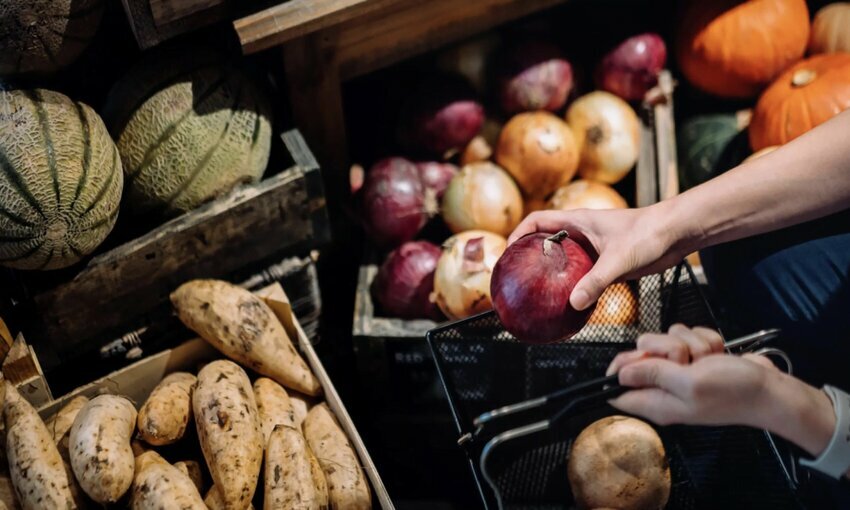 (Credit: Paris 2024)
(Credit: Paris 2024)With the Paris 2024 Olympic games not far off, organizers are focusing their efforts on reducing the carbon footprint of the 13 million meals that will be served over the four-week span of the global event.
Overall, catering is one of the smaller contributors to the carbon emissions of the Olympics, but for France, which is known for its cuisine, the focus on food is symbolic. The International Olympic Committee is looking to halve the carbon footprint of catering compared to previous editions of the games, as well as halve single-use plastic, source at least 80% of the products locally or from France, and more.
“France certainly knows how to welcome the world to its table,” Marie Sallois, the IOC’s director for sustainability, said in a statement. “The Games (organizers) are laser-focused on showcasing French food that is sourced, produced, and consumed in a responsible way. We hope that this approach will go beyond helping reduce the Games’ footprint, raising the bar for sustainable catering at sports events and beyond.”
Feeding the participants in the Olympic games goes well beyond the athletes––with spectators, athletes, staff, volunteers, the media, and the Olympic and Paralympic community all being major commitments. The Paris 2024 food vision included representatives from across France’ agri-food sector. Over an 18-month period, 120 organizations, from agriculture and catering to NGOs and nutritionists, came together to create the vision. The organizer also conducted workshops and interviewed 200 athletes to understand their eating habits, cultural needs, and tastes. The organizers boast they will create the largest restaurant in the world at the Olympic and Paralympic Village.
The focus on food at the games comes as global food systems are under pressure due to climate change. Unsustainable agricultural practices that accelerate biodiversity loss, temperature rises and soil degradation are all negatively influencing food systems. By providing a more responsible food model at the Paris 2024 games, organizers hope to be an example for sports and cultural events in the future.
Paris 2024 will meet a handful of goals beyond reducing the carbon footprint and sourcing food locally, it will also reduce food waste and recover 100% of unconsumed resources; reuse all catering equipment; and reserve 10% of jobs overall – and 15% in the Olympic and Paralympic Village – for people with disabilities or from disadvantaged backgrounds.